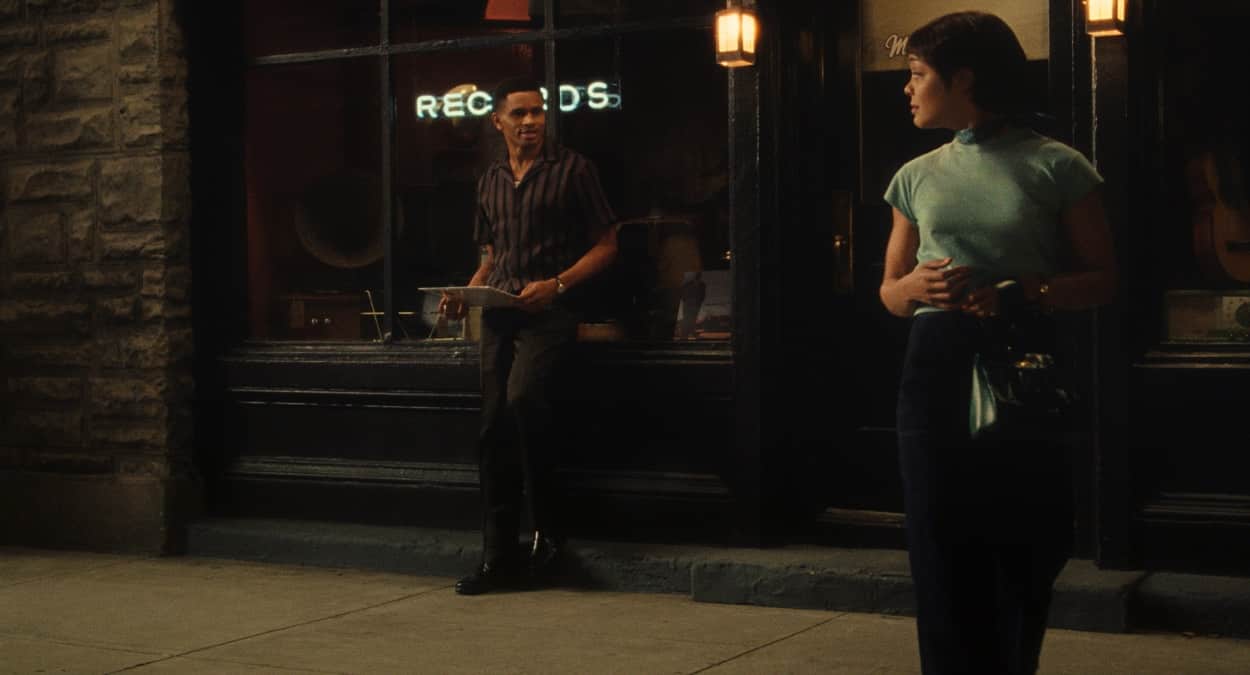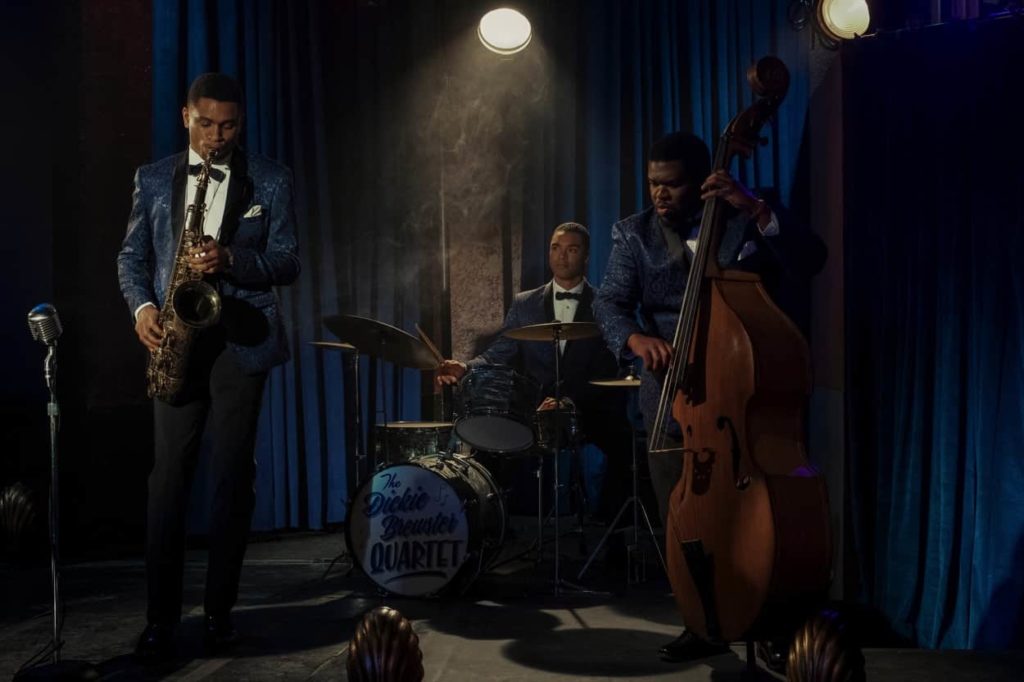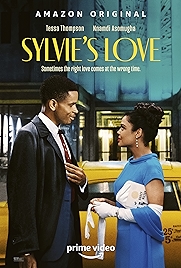The remarkable thing about Sylvie’s Love is actually how unremarkable it is in many ways. It’s a white-sliced, white-picket-fence melodrama of a sort that once might have starred a Joan Crawford. Except it’s black rather than white people playing all the parts.
That shouldn’t be remarkable, nor should stories about the black middle classes, but it is and Eugene Ashe’s drama knows it’s doing something different in its deliberately old-fashioned, “they don’t make them like this any more” way.
Tessa Thompson plays Sylvie, the young woman who works in her daddy’s record store but really wants to get a job in TV. Nnamdi Asomugha is Robert, the tall, dark and handsome saxophonist who walks in one day and sweeps her off her feet, even though she’s already engaged, to a guy out fighting the war in Korea.
In then (the 1950s) and now (the 1960s) style, the film follows their struggle to be together, her efforts to be an independent woman in a world built and run for white men, and his to make a living doing the thing he does, even though rock and roll music is about to make his beloved jazz suddenly incredibly uncool.
He’s a talented dude. We’re told regularly that there’s only really John Coltrane who’s ahead of him. She’s got the makings of a great career in television, something that’s rare for someone of her gender and colour, and yet there’s a vanilla aspect to both of these characters that’s surely deliberate – they’re standing for something.
The same feeling comes across with the whole production. In the way that West Side Story never really felt like it was set in an actual ghetto, Sylvie’s Love is dressed and styled in such a way that artificiality seems to be its aim, whether we’re in the 1950s or 1960s version of it – lovers of mid century modern furniture can bask in the retro.
Douglas Sirk, you could say, or Todd Haynes (whose film Far from Heaven is Sirk pastiche, and who memorably directed a TV mini-series remake of Mildred Pierce) but also hints of Wong Kar Wai’s In the Mood for Love, another tale of a raging impossible love.
It’s a beautifully cast film, with minor roles written with economy and played with precision – Erica Gimpel, for instance, as Sylvie’s snobbish Miss Jean Brodie-style mother, or Eva Longoria as a Peggy Lee-style vamp singer. It’s little more than a walk-on but it’s got oomph.
There’s a lot of music: jazz noodling by Robert and his fellow musicians, hits of the era on the soundtrack (and not the familiar ones, for the most part) and Fabrice Lecomte’s Sirkian score, all moody swelling strings.
Race is a feature, because it had to be if you were a person of colour in the 1950s and 1960s, but it isn’t what this film is about. For the most part this is a film about bright, confident successful black people, who aren’t reduced to being a “social problem”. The troubles that Sylvie and Robert have are emotional not political.
They’re a good fit, Thompson and Asomugha, a believable romantic couple you will to be together, even though she ends up married to the dull dude (Alano Miller in the thankless role) who eventually did come back from the war to start crawling up the corporate pole.
The “meta” aspect fights the particularity all the way to the finish – I never believed Robert was a great musician, or that Sylvie was a gift to the world of TV – but given what Sylvie’s Love is trying to do, that is surely only to be expected. The important thing is that when Robert and Sylvie kiss, you feel it too. Pucker up.
Sylvie’s Love – Watch it/buy it at Amazon
I am an Amazon affiliate
© Steve Morrissey 2021


